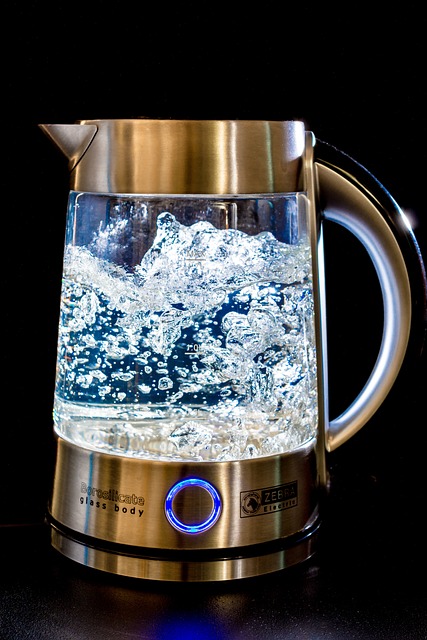Water heaters typically last 8-12 years (tank-based) or up to 20 years (tankless), but regular maintenance and signs like decreased heating, temperature fluctuations, rust, or leaks indicate the need for replacement. Proactive inspections prevent unexpected breakdowns, save on utility bills, reduce environmental impact, and avoid property damage from failing heaters.
Water heaters are essential home appliances, but their lifespan varies significantly. Understanding the factors influencing durability is crucial for maintaining hot water comfort. This article explores the average longevity of water heaters and provides insights into recognizing signs you need a new one. We’ll also uncover maintenance tips to maximize your heater’s life, ensuring consistent hot water availability. By the end, you’ll be equipped with knowledge to make informed decisions regarding your water heating system.
- Understanding Water Heater Lifespan: Factors Affecting Durability
- Common Signs Indicating a Need for Water Heater Replacement
- Maximizing Water Heater Life: Maintenance Tips and Best Practices
Understanding Water Heater Lifespan: Factors Affecting Durability

Understanding Water Heater Lifespan: Factors Affecting Durability
The lifespan of a water heater varies significantly based on several factors, including the type of water heater, frequency of use, quality of installation, and maintenance history. Tank-based water heaters, for instance, generally last between 8 to 12 years, while tankless models can extend their lifespans up to 20 years or more with proper care. Despite their durability, water heaters eventually wear out or become less efficient, showing signs that it’s time for a replacement.
Factors such as rust buildup, constant temperature fluctuations, and aging components contribute to the deterioration of water heaters. If you notice persistent issues like decreased water heating capacity, frequent temperature variations, loud noises coming from the heater, or signs of corrosion, it might be an indication that your water heater needs to be replaced. Keeping up with regular maintenance, including flushing and checking for leaks, can help prolong its lifespan, but eventually, all water heaters will reach the end of their useful life.
Common Signs Indicating a Need for Water Heater Replacement

Many homeowners take their water heaters for granted until they stop working altogether. Knowing the common signs of a failing water heater can help you stay ahead of unexpected breakdowns and costly repairs. If you notice any of the following, it might be time to consider replacing your water heater:
1. Age and Efficiency: Water heaters typically last between 8 to 12 years with proper care. If your unit is older than this, it may not be as energy-efficient as newer models, costing you more in utility bills. Modern water heaters come with advanced features that can significantly enhance energy efficiency, reducing your carbon footprint and saving on heating costs.
2. Rust or Leaks: Rust is a clear indication of corrosion within the tank, which can lead to leaks. These issues not only pose a safety hazard but also signal that your water heater’s structural integrity is compromised. Regular inspections can help catch rusting early, but if left unattended, it could result in a failing system and potential property damage.
Maximizing Water Heater Life: Maintenance Tips and Best Practices

To maximize the lifespan of your water heater, regular maintenance is key. Start by checking for any signs of damage or leaks—even small drips can lead to significant water waste and structural damage over time. Regularly inspecting your heater’s connections and valves ensures they’re secure and functioning correctly.
Consider flushing your water heater at least once a year to remove mineral deposits and sediment buildup, which can reduce efficiency and shorten the lifespan. Keep an eye on energy bills; if you notice a sudden spike, it might indicate reduced efficiency due to age or maintenance issues. Finally, schedule professional inspections to address any potential problems early on. Recognizing the Signs You Need a New Water Heater, such as frequent repairs, low water pressure, or outdated models, will help ensure a smooth transition and maintain a reliable hot water supply for your home.
Knowing the typical lifespan of your water heater is essential in avoiding unexpected breakdowns. While they can last up to 20 years with proper care, factors like usage, maintenance, and quality can impact this duration. If you notice persistent problems or inefficient heating, it might be a sign that it’s time for a new water heater. Regular maintenance, such as flushing and insulation, can significantly extend its life, ensuring you stay warm and saving you from costly repairs. When considering replacement, look for energy-efficient models to reduce running costs and contribute to a greener future.
